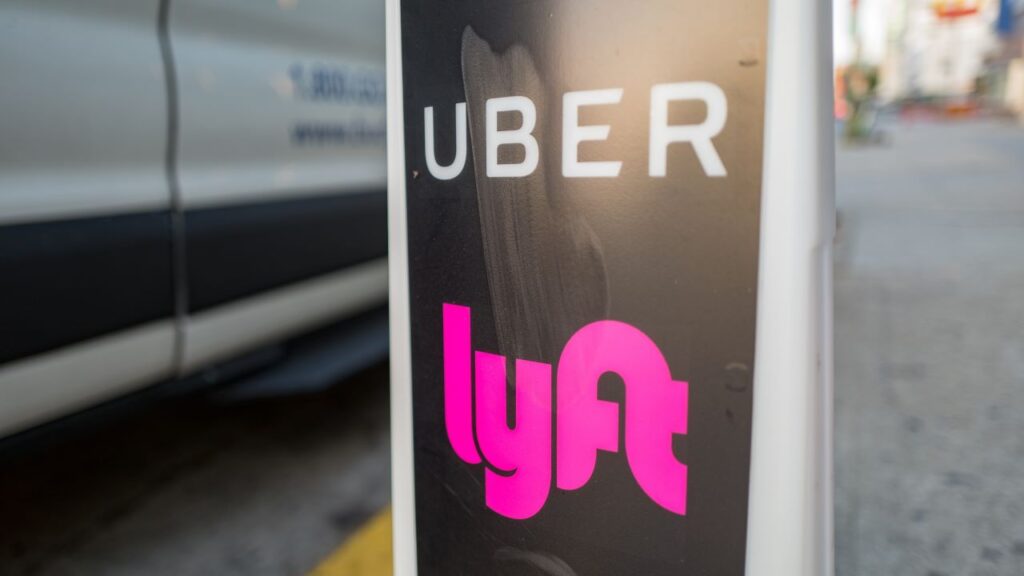News
Uber/ Lyft leaving Minneapolis on May 1st? Council members propose motion to delay
Uber and Lyft are leaving Minneapolis due to new ordinance, with Uber not only leaving Minneapolis, but the entire Minneapolis/ St. Paul metropolitan area. This is because of a new ordinance that has been passed that increases the wage of drivers to an equivalent of $15.57 an hour, the state’s minimum wage. This means that these car service companies would have to pay drivers at least $1.40 per mile, $0.51 per minute a ride, or $5 a ride. The companies deem that it would be too expensive to stay in the cities with this new wage increase. Lyft said the city’s rate “will make rides too expensive for most riders, meaning drivers will ultimately earn less. This is unsustainable for our customers.” Uber also warned of decreased demand, saying even the state study’s rate would still “likely lead to lower hourly pay since drivers will spend more time in between rides waiting for passengers,” company spokesperson Josh Gold said.
An interesting result has sprouted from this new development involving big rideshare companies leaving the area, however. Council member and Ward 9 representative Jason Chavez states “Council’s rideshare minimum compensation ordinance has prompted nearly a dozen new and expanding rideshare companies to prepare to launch in Minneapolis. These include businesses that are locally owned, owned by people of color, and a worker-owned co-operative.” Beyond this positive development, Chavez also stated “Additionally, the ordinance has sparked a local and national conversation about how every single worker deserves a minimum wage.” Therefore, this new movement has sparked a new opportunity for workers to potentially earn the state’s minimum wage at the very least, no matter their field or role.
However, there is some discourse about this situation in opposition of the ordinance. There has been talk of some state legislators proposing preempting, or overriding, the City ordinance with a state law. According to Chavez. “At the end of March, Council Member Jenkins introduced a notice of intent to reconsider the ordinance without any specifics of what changes she intended to make. This caused a great deal of confusion amongst the public, as well as concern from new and emerging rideshare companies that Council was going to repeal the ordinance.” Jamie Long, Majority Leader of the Minnesota House of Representatives, has said “I think that we will get to a result that’s going to keep the companies operating and is going to protect the drivers,” Long told reporters. “I’m hoping that we can avoid preemption.” Despite this pressure and pushback due to the negative effects of pushing out large companies from the area, Chavez stated “We do not support rescinding the ordinance or support changing the rates to subminimum wage equivalents in response to corporate pressure from Uber and Lyft.”
To solve these ongoing disputes and get representatives on the same page, there was a meeting held on April 11th with the council. According to Chavez, “Council Member Jenkins may bring any amendment to the ordinance or motion to rescind the ordinance entirely. She has not shared her intentions with the Council or the public”; “Council Members Payne, Cashman, and Chowdhury are bringing a motion to delay the implementation of the ordinance from May 1 to July 1 to give more time for new and emerging companies to establish infrastructure, recruit drivers, and publicize to riders. This change may or may not influence Uber or Lyft’s decision to leave the city on May 1 in response to Council mandating that they pay minimum wage equivalents,” following up with “We support adjusting the implementation date to July 1 to support new and emerging rideshare companies.”; “The ordinance co-authors will be bringing a notice of intent to amend the ordinance with two provisions that are crucial for successful enforcement. These will progress through the legislative process starting on April 11th, with a full vote of the Council in late May.” these include “Fare transparency- mandating that all rideshare companies send receipts to both riders and drivers detailing how much the rider was charged, how much the driver was paid, the distance and duration of the ride, and other basic details,” and “Data disclosure- outlining the data that all rideshare companies must report to the City regularly. Regular and unrestricted data is crucial for the Council to be able to assess and enforce the ordinance. Currently, the city’s Policy and Research (PAR) division is in contact with the Minnesota Department of Labor and Industry (DLI) to see if there is any available Minneapolis-specific data. This amendment would guarantee the city direct access to much more comprehensive and Minneapolis-specific data going forward.”
Chavez ended his joint statement with Ward 2 Council Member Robin Wonsley and Ward 6 Council Member Jamal Osman by stating “We are confident that these three changes – a July 1 implementation date, data disclosure, and fare transparency – will strengthen the policy and help ensure equitable outcomes for drivers and riders. We are also excited to continue the ongoing conversations with the State Legislature about a statewide policy to complement Minneapolis, as well as continued conversations about a smooth and equitable implementation of the ordinance with our local partners including labor, Meet Minneapolis, Metro Transit, the Chamber of Commerce, and more.”
If you’re interested in contacting the Ward 9 office to learn more, here is their information:
Phone: 612-673-2209
Temporary address while work is being done in City Hall:
Room 100, Public Service Center
450 South 4th St.



